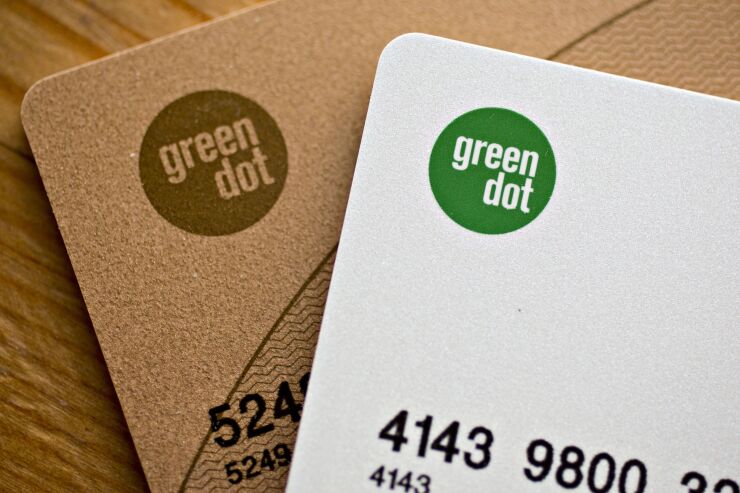Green Dot is partnering with and investing $2.5 million in
According to the
The problem is particularly urgent for Black people, who made up the highest proportion of the underbanked, at 35% compared with 11% of whites. Black households also make up the highest proportion of the 7.1 million households who have no bank account at all, according to the

“Banks are structured in a way that makes it very cheap to access money if you have money, and very expensive to access money if you’re low on funds,” said
Green Dot and Gig Wage will provide the “first comprehensive end-to-end solution for the gig economy,” where as many as 40% of workers in certain sectors are unbanked or underbanked, according to Lewis. The goal is to offer a suite of services that address the way money moves through the entire ecosystem.
While many in the traditional workforce operate on a check-to-check basis, these gig workers could be surviving day to day. But without financial infrastructure, they can’t access their money as frequently or inexpensively. And without a bank account, they can’t set earnings aside for savings, taxes or a 401(k).
“The low-to-moderate-income consumer — I believe they’ve been overlooked or taken advantage of for decades,” said Dan Henry, Green Dot’s chief executive.
Green Dot, of Pasadena, Calif., is hoping to rectify that situation next year when it launches a bank account in partnership with Gig Wage that will give workers money-management tools and immediate access to funds. The two companies also designed a debit card specifically for gig workers. Those contributions, plus instant payments and payroll services from Gig Wage, should provide the “social safety net and basic banking that these workers need,” Lewis said.
His and Lewis’s mission to get workers banked accelerated when unrest hit the streets earlier this year. Late one night this summer, the two were on a Zoom call hashing out the deal when a wave of sound cut through Lewis’s glass-walled corner office in Dallas. From the 34th floor of Thanksgiving Tower, he heard a crowd below chanting, “Black Lives Matter.” The rallying call was so loud, it reached across the web connection to Henry.
“That sound gave Dan and me a chance to break away from the transactional part of the conversation and talk about how I was feeling at the time,” Lewis said. “That was at the top of mind for me every day. There was no separating the grind of being an entrepreneur with the grind of being a Black man in America.”
That night informed Lewis and Henry’s new partnership as they examined the ways the banking industry has contributed to inequality, and the ways they could set it right.
“For every George Floyd murder we see, we need to stop those things from happening, but we also need people to be successful,” Lewis said. “We need people to have courage to build amazing companies. We need to be able to lobby and write checks. That’s what drives my passion to help people get paid.”





